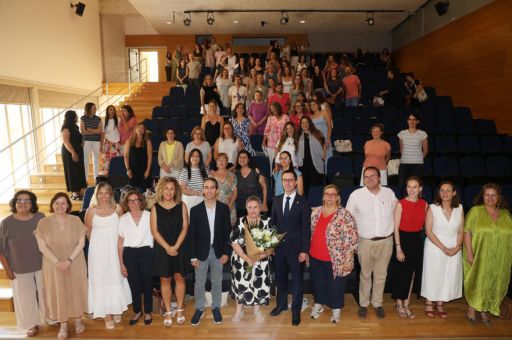A Caring Society: The Council and IMAS Commemorate World Elder Abuse Awareness Day with a Focus on Prevention and Dignity
The 14th edition of the conference “A Look at the Protection of Older People” brought together around a hundred social services professionals from across Mallorca to reflect on good treatment, inclusion, and active protection.
“A society that does not care for its elderly is a society that fails at the most basic level: respect and collective memory.” With these words, the President of the Consell de Mallorca, Llorenç Galmés, concluded the 14th edition of “A Look at the Protection of Older People”, held today at the Gaspar Melchor de Jovellanos Auditorium at the University of the Balearic Islands (UIB). The event, marking World Elder Abuse Awareness Day on June 15, gathered around 100 social services professionals from Mallorca to share experiences and strategies related to kindness, prevention, and support.
TDB keeps you informed. Follow us on: Facebook, Twitter and Instagram
A Caring Society
IMAS President and Minister of Social Welfare, Guillermo Sánchez, opened the event by highlighting the importance of a community approach:
“Good treatment is not just about protection—it’s about recognising and valuing the active role older people play in our society. This conference is intended to serve as a tool for awareness and action among all social agents involved.”
Community and Culture as Preventative Tools
The first roundtable, moderated by Catalina Maria Mascaró, Island Director of Community Care and Promotion of Personal Autonomy, focused on “Community Activities as Preventative Tools.”
Cati Miralles, psychologist and co-founder of Mallorca Integra, explained how active participation in the social environment helps older people strengthen social ties, build self-esteem, and prevent vulnerability. One of the project’s participants, Jaume Bernat, shared his story, emphasising how “feeling part of a group” was essential to his journey.
Meanwhile, Maria del Mar Matas, from Apropa Cultura, highlighted that “culture is a tool for social transformation that helps combat isolation, prevent health and well-being issues, and foster inclusion of older adults.” This idea was reinforced by Cristina Clar, Director of the IMAS Centre for the Promotion of Personal Autonomy in Felanitx, who shared community initiatives from the centre alongside user Isabel Vidal, who emphasised the importance of “feeling connected, active, and accompanied.”
When Grandparents Become Parents
The second roundtable, titled “Grandparents Who Care”, was moderated by IMAS Vice-President Magdalena García Gual and focused on a growing, often invisible reality: grandparents who take in and care for children and teenagers.
IMAS Family Support Service professionals Àngela Ramis and Pilar Moyà presented findings from their 2024 article in the UIB’s Ageing Yearbook, titled “Grandparents Who Care: A Reality Within the Child and Family Protection System.” The study shows that grandparental care is among the most common types of foster arrangements formalised by IMAS. This deeply rooted practice, however, comes with serious challenges: unexpected role shifts, intergenerational conflicts, emotional strain, and the physical and mental burden on caregivers often aged over 60.
“Many of these grandparents carry worry, guilt, and fear over their children’s circumstances, while also taking on child-rearing responsibilities—often without sufficient resources,” explained Pilar Moyà.
Magdalena Moyà, from the organisation Intress, stressed the need for economic, emotional, and professional support to ensure a safe, healthy environment for both the children and their caregivers.
Two grandmothers from the ACOFAM family support program shared their powerful personal experiences, illustrating both the complexity and resilience of this caregiving reality.
With this event, IMAS reaffirms its commitment to building a society that is more protective, more empathetic, and more just towards older people and the diverse family realities that often remain unseen.
